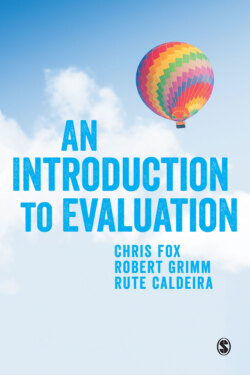Читать книгу An Introduction to Evaluation - Chris Fox - Страница 50
На сайте Литреса книга снята с продажи.
Guiding principles that relate to evaluators’ inherent ethics Professional integrity
ОглавлениеOften when it comes to professional integrity what is emphasised from an ethical point of view is the evaluators’ obligation to disclose their inability to carry out the evaluation. This can be due to a lack of the necessary qualifications, experience, or a conflict of interest.
However, it should also encompass the evaluators’ readiness to ‘[D]ecline evaluation assignments where the client is unresponsive to their expressed concerns that the evaluation methodology or procedures are likely to produce a misleading result’ (UNEG 2007:6).
This, of course, means that professional integrity obliges any evaluator to ensure that external and internal pressures do not succeed in biasing the findings and unduly influence the evaluators’ recommendations. It is the equivalent of Church’s principle of freedom from political interference whereby ‘[E]valuations should be conducted free from political interference from the implementing organization, the donor, the evaluation team, and the stakeholders’ (Church and Rogers 2006: 195).
